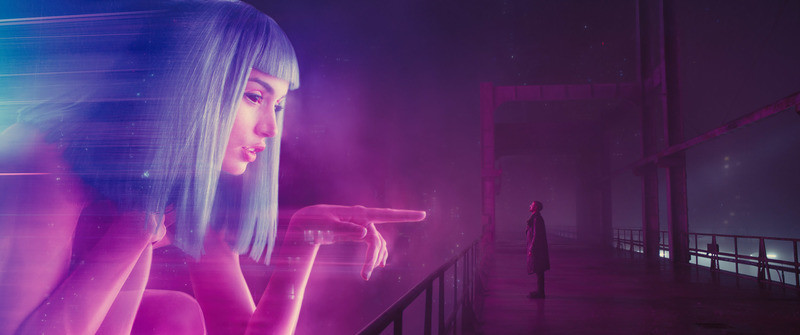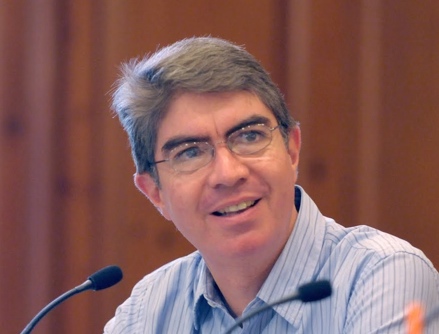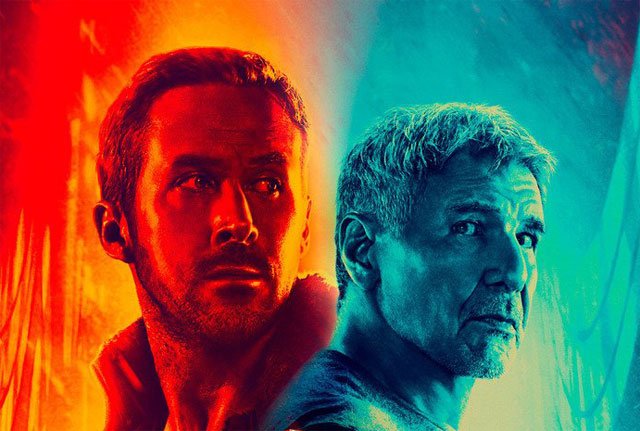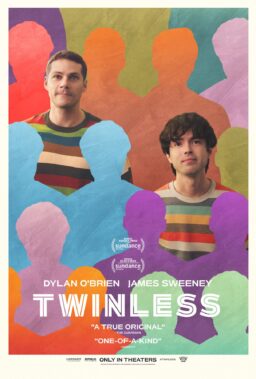Sometime in the autumn of 1982, I first got word on what sounded like an amazing coming movie. As I was told, the director of “Alien” had made an incredible looking feature about a Harrison Ford cop chasing Ash-like creatures (the Ian Holm character from Ridley Scott’s earlier film) called replicants in the futuristic Los Angeles of 2019. This was way before “Blade Runner” achieved cult classic status but surprisingly, my first viewing mostly left me cold. Still there were aspects about it that led me to believe time would eventually change my perception, something that sadly just hasn’t happened. This compelled me to write about the possible reasons behind that in one of the last pieces I wrote for Roger.
And so, 35 years later, the much anticipated sequel titled “Blade Runner 2049” has been released. Set only 30 years into the future, this new Denis Villeneuve-directed film deals with the next generation of Blade Runners, a more docile type of artificially law enforcers, assigned with getting rid of the few remaining, older models. These new “replicants” are (still inexplicably) made to be indistinguishable from human beings in the same fashion than in the prior movie. The story follows Ryan Gosling’s K during a mission where he accidentally makes a discovery that will threaten this society’s status quo. Now, if replicants really do have the ability to procreate (something a little too far-fetched, even for a movie like this), how would this affect a society where humans and replicants are so similar? “Blade Runner 2049” does not go into great detail about this predicament as this mostly represents the movie’s “macguffin” of sorts, a way to set the events in motion and the excuse for the characters to chase after each other.
“Blade Runner 2049” is clearly one of those “if you like the first one then you’ll definitely like the next” movies as it takes the exact same approach as its predecessor, including a very Vangelis-like score, without which the resulting visual impact here would be unimaginable. Had I watched it without knowing better I would have surely assumed it was directed by (now) producer Ridley Scott as well, with “Blade Runner 2049” taking most of its production design cues from Scott’s earlier movie. And even though Villenueve uses them as his main inspiration, “Blade Runner 2049” is a triumph of art design in its own right, with seamless special effects and images that represent works of art by themselves. At this point in time, I just can’t imagine how the Academy will avoid giving Roger Deakins his long overdue Oscar this time around.
The Los Angeles of “Blade Runner 2049” is every bit as fascinating as that in the original. “Blade Runner” influenced later futuristic films that followed by having just about every one of them come up with their own technological innovations for mass advertising via giant animated signs. Think of those in the highways of “Minority Report,” in the earth deleted scenes of “Avatar” and even the “Jaws 19” 3D marquee from “Back to the Future II.” Still, after watching “Blade Runner 2049” it’s safe to say that the astounding, gigantic hologram of K’s girlfriend by the side of a bridge blows all of these other examples right out of the water. Villeneuve also has some fun by including a small sample of the long defunct Pan Am airline as homage to one of the most memorable visuals from the earlier entry. “Blade Runner 2049” is also the latest in a long line of recent movies to follow its predecessor in opening with the same close-up shot of an eye with its pupil adapting to the light, (think of “Minority Report,” “Rise of the Planet of the Apes,” “Avatar,” “Rush” and even as recently as Ridley’s own “Alien Covenant”). This image is not to be confused with the not-as-extreme shot of both staring eyes that was likely started by Martin Scorsese in “Taxi Driver” and later brought back in several of his following movies.
There is a downside, I believe, to Villenueve following the original “Blade Runner” approach. Both movies lack a real sense of urgency, something that is especially noticeable in “Blade Runner 2049” and its 164-minute running time. My complaint doesn’t have to do so much with the few (and far between) action scenes as with several other sections that tended to leave me clueless as to where the director was heading. As discussed in my prior articles, I think it was from James Cameron that I heard the best definition of what the function of dialogue in film should be, and it goes something like this: every line in a script should answer something a previous one set up before it and simultaneously, set up the next one to follow. Much as its predecessor, “Blade Runner 2049” provides some terrific scenes like the long, detailed birth of a replicant or the consummation of K’s relationship with his artificial, girlfriend through the Darryl Hannah-looking replicant (played by Mackenzie Davis in her only real function for this movie) creating an astounding amalgam of both characters mixed into a single one. The problem is that these scenes don’t add much to the movie’s central plot and raise several other questions, such as what would be the point of building Blade Runners with human needs if they are simply machine dispensing cyborgs? Why would BR replicants be built with other requirements such as having their own apartment in a city where livable space seems to be scarce? (Why not simply place them in a locker or the like?) And more importantly, why does the Tyrell corporation (or in this case, its successor) keep on building machines that find new ways of questioning their orders?
“Blade Runner 2049” doesn’t deal with any these matters but it does solve one of my main complaints from its predecessor. In one of “Blade Runner 2049″‘s early scenes we see the older model Sapper Morton (Dave Bautista) smashing K against a wall and throwing him right through it without causing much damage, effectively revealing that K is indeed a replicant. This makes much sense to me. After all, what could possibly be the point of building Blade Runners with lesser physical capabilities than their prey, as was the case with the Harrison Ford’s Deckard from the prior movie?

Still, I found “Blade Runner 2049” to be much more involving than the original movie, in no small measure thanks to the presence of Joi (Ana de Armas), K’s “love interest.” She’s much more captivating than her Rachael (Sean Yong) counterpart, who always seemed to me like an non-expressive mannequin. The irony here being that Joi is nothing more than a high-tech hologram, comically designed to fill the particular needs of the user depending on their particular moods (something that doesn’t make any sense with a replicant to begin with). Somehow Joi ends up becoming a three-dimensional individual that feels just about as real as the similar Scarlett Johansson’s character in Spke Jonze’s “Her” and feels more human than most of the real people in both “Blade Runner” films.
There is nothing really wrong about any aspect of “Blade Runner 2049” but I don’t think its character’s motives end up adding up to much. The villains might be just as memorable as those in the prior movie but I never got a sense of why they would ever feel so desperate to achieve their goals. Take for instance the film’s final sequence: If it was really that important to rid themselves of the Deckard character, why go through the trouble of taking him for a ride if not just for the obvious possibilities of creating a great action scene? Both “Blade Runner” movies have dropped what appear to be key hints about the nature of their characters but considering that replicants and humans tend to act and feel pretty much the same way, I don’t see how this makes any difference. After watching both films (and without being certain), I’m under the impression that Deckard, Rachel and K are indeed all replicants. But even if this is the case, I’m not sure why this matters all that much.
At the end of the day, “Blade Runner 2049” is much more interested in wowing the audience with its scenery and extremely cool sequences than with its story. The movie’s main goal seems to be making the viewer live, breathe and feel the incredible Los Angeles of the future and in this regard, it certainly succeeds. “Blade Runner 2049” is clearly is a better film than the original “Blade Runner” but their overall faults are pretty much the same. There is clearly greatness in both but that doesn’t necessarily make them great. While watching the two of them it’s hard to avoid the feeling that a truly Great Movie is hidden in there somewhere.












